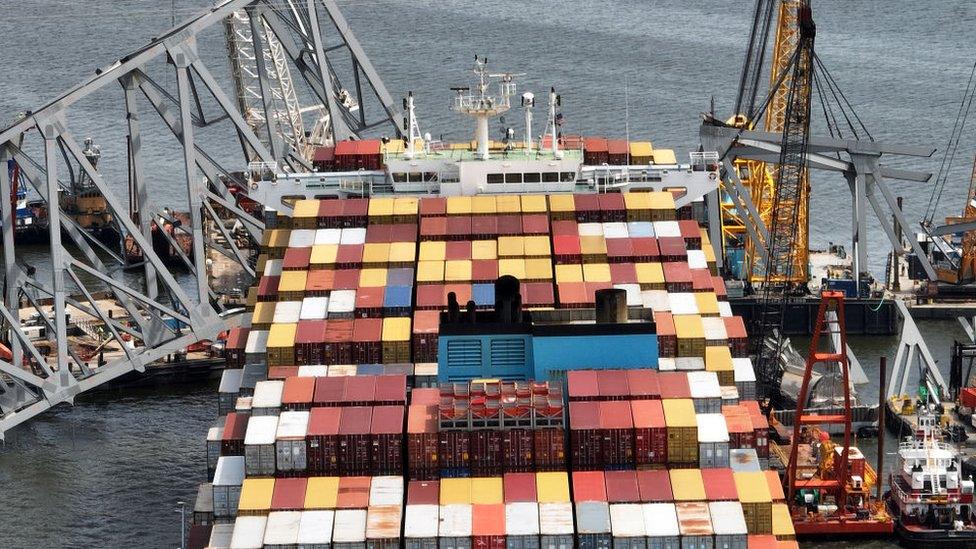Baltimore shipping channel reopens after bridge collapse
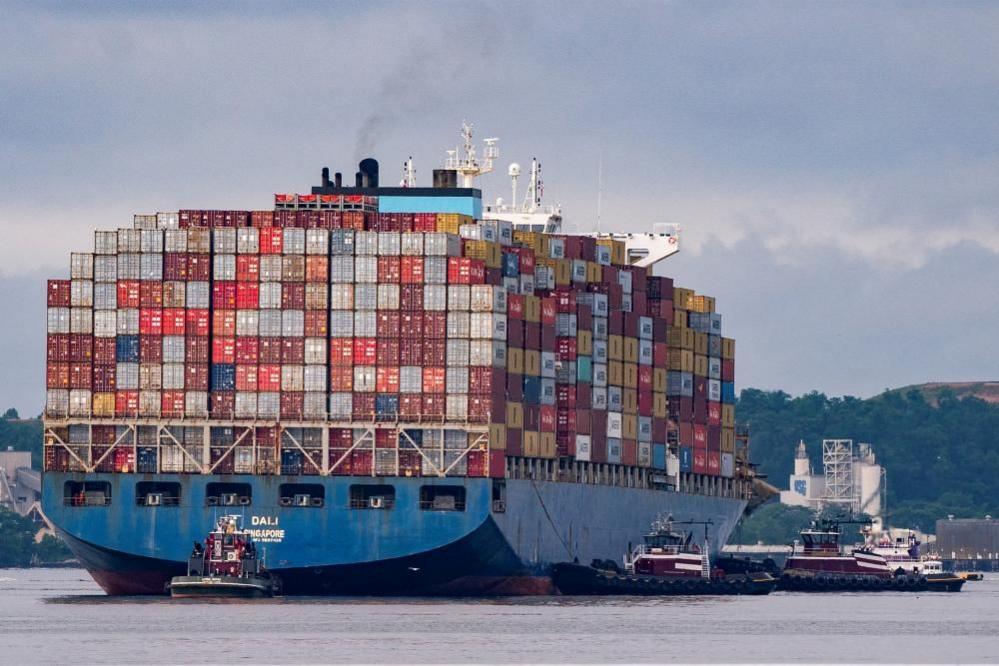
- Published
The Port of Baltimore shipping channel has fully reopened, 11 weeks after the Francis Scott Key Bridge collapsed when it was struck by a cargo ship.
The US Army Corps of Engineers said the passageway where the Key Bridge buckled was now "safe for transit".
The 700ft (213m) wide and 50ft (15m) deep channel has been restored to its original operational dimensions.
The Dali ship veered into the span on 26 March, cutting off the shipping artery and killing six construction workers.
Crews have had to remove 50,000 tonnes of wreckage, the US Army Corps of Engineers said.
Some 2,000 salvage responders, including hundreds of specialists from around the world, worked to remove the heap of steel and concrete with the help of a fleet of tugboats and more than a dozen floating cranes.
Baltimore District Commander Col Estee Pinchasin said in a statement: "Although the overarching goal to restore full operational capacity to the Federal Channel was successful, each day we thought of those who lost their lives, their families and the workers impacted by this tragic event."
The crash left the vessel trapped under the wreckage in the Patapsco river.
Last month, the Dali was moved by tugboats, marking one of the last steps needed to clear up shipping routes before Monday's reopening.
The FBI and US Coast Guard are investigating the incident.
Last month the National Transportation Safety Board said the Dali lost power several times before it rammed into the bridge.
Rebuilding the span will take more than four years and cost up to $1.9bn (£1.5bn), state authorities in Maryland have said.
Related topics
- Published20 May 2024
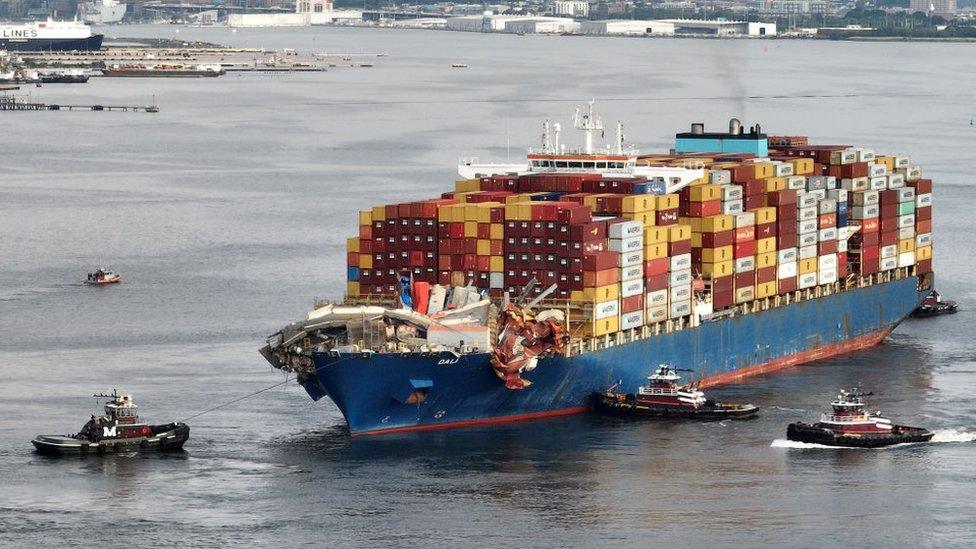
- Published14 May 2024
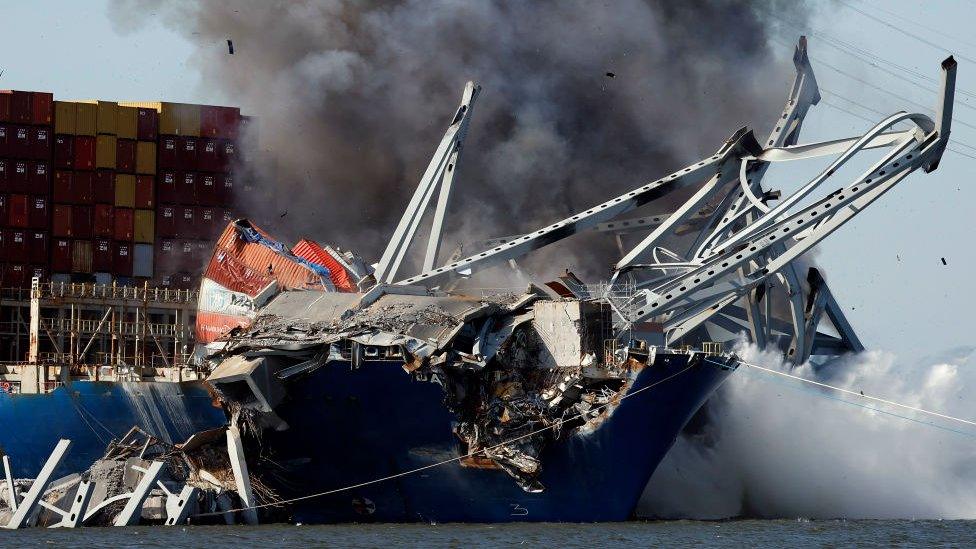
- Published13 May 2024
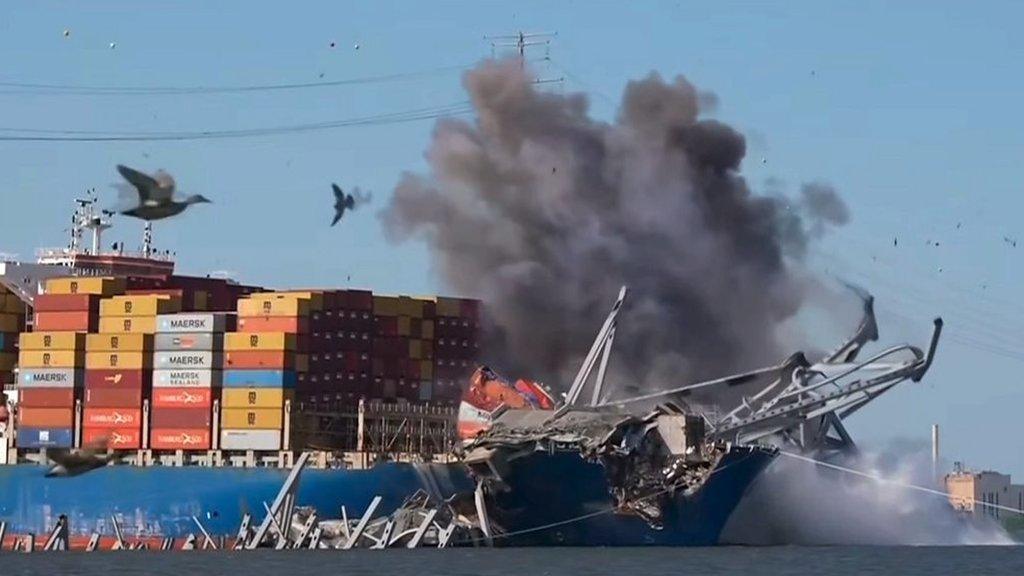
- Published9 May 2024
